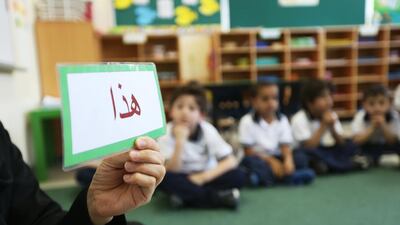In a recent article for The Telegraph, Julian Thomas, the headmaster of Wellington College in the UK, took a shot at the state of education but ended up some way wide of the mark.
For Mr Thomas, the examination system adopted by schools the world over is the product of a make-do and mend approach to education. Our ongoing desire for students to hold large amounts of knowledge or information and then applying this to a task is outmoded in the 21st century, so he claims.
With absolute faith in my worst nightmare, that the majority of jobs requiring the skills of “method and recall” tested by our examination system will be taken over by robots, Mr Thomas would like to see critical thinking, service and independent learning as the mainstay of assessment rather than knowledge itself. The reason being that the only jobs left for our pupils will be those that require emotional intelligence and social skills rather than knowledge. So far, so logical.
However, I find it increasingly unlikely that the worst-case scenario anticipated by Mr Thomas et al will ever manifest itself entirely, if at all. We already know that airplanes can fly themselves but, given the choice, how many passengers would actually board an A380 flown by a circuit board over one with a living pilot at the helm?
More than this, however, there is too much at stake to throw the baby out with the bathwater here. Where do emotional intelligence and social skills come from if not from a deep knowledge of the human condition? Whether through the odes of Horace (carpe diem and all that) or the works of Shakespeare (“There are greater things in heaven and earth than are dreamt of in your philosophy, Horatio”), social intelligence can only be born from a profound and broad ranging knowledge of culture.
In her 2014 tour-de-force, Seven Myths about Education, the young educationalist Daisy Christodoulou magnificently debunks much of this current craze with revolutionising our education system.
For Ms Christodoulou, skills without knowledge are like a bird without wings: it is only through a secure grasp of facts that we can ever hope to achieve understanding. It is only through teacher-led instruction that students can ever hope to know how to utilise their knowledge.
The 21st century fundamentally changes nothing. In fact, we have an even greater need to hold on to the knowledge of humanity in the light of an ever greater proliferation of technology. The ability to Google something does not do away with the need to know how to use that information.
Ms Christodoulou’s most compelling argument is that transferable skills are worthless without knowledge: handing a laptop to a chimpanzee who knows how to type would never lead to the next War and Peace.
In my mind, therefore, we are actually entering a golden age of education. As educators we know that we must be forward- looking in our strategic intentions in light of social and technological innovations. And yet as humans with a broad appreciation of the rise and fall of civilisations we know that we need to hold on to our cultural heritage.
And so, far from being a make and do and mend system of traditional examinations, I believe education is reaching its zenith.
When I look at our current school leavers and consider their level of knowledge and skills in addition to quite how urbane they are, I am humbled. Compared to my own cloistered education in the leafy shires of England, the modern British educator can proudly claim to have done more than make-do and mend. They have evolved and pioneered a truly world-class education system which has now been exported to the four corners of the globe as a consequence.
Michael Lambert is the headmaster of Dubai College

